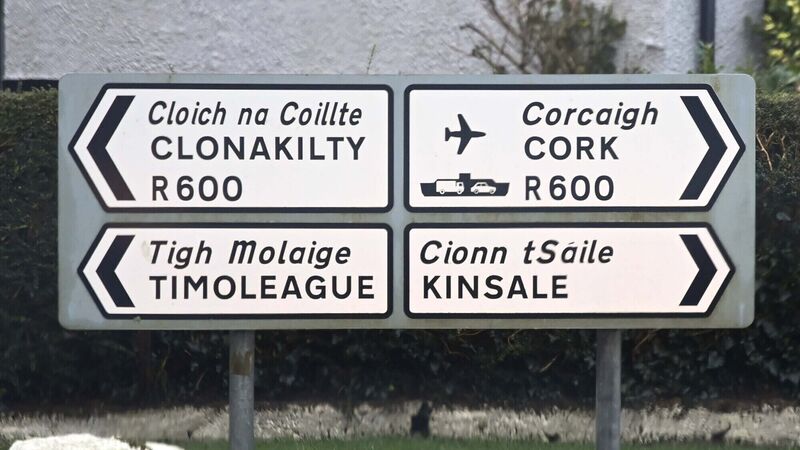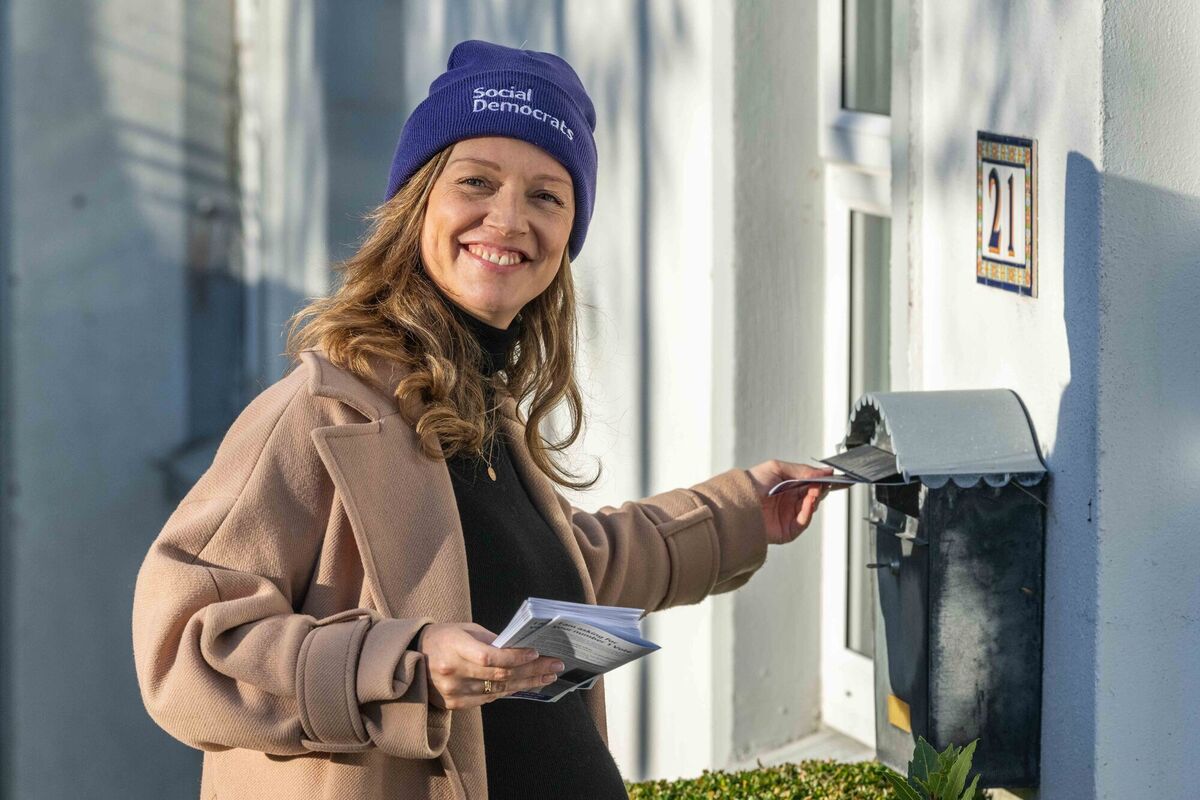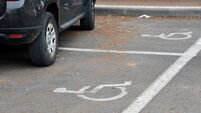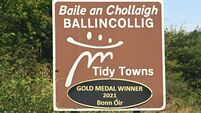General Election 2024: Childcare, housing and cost of living key issues in Cork South West constituency

The Cork South West constituency is defined by medium-sized towns.
There are three seats up for grabs in Cork South West.
Outgoing TDs include the leader of the Social Democrats, Holly Cairns, the leader of Independent Ireland, Michael Collins, and Fianna Fáil’s Christopher O’Sullivan.
Mr Collins retained his seat in the 2020 general election, topping the poll in Cork South West.
He took 26.42% first-preference votes and was elected on the first count.
A strong Independent vote is expected in the constituency. Mr Collins is predicted to be re-elected, although which two Cork South-West candidates will join him in Dáil Éireann is less certain.
Mr O’Sullivan was elected on the eighth count in 2020, just ahead of Ms Cairns, with Fine Gael’s Tim Lombard not far behind.
Fine Gael have selected another candidate to run in the upcoming elections, alongside Mr Lombard: Skibbereen local electoral area councillor, Noel O’Donovan, a former garda.
The Labour Party is running Clonakilty-based disability activist Evie Nevin. Sinn Féin have selected support co-ordinator Clare O’Callaghan, who works with older people in the community, and Donnchadh Ó Seaghdha, who was elected to Skibbereen Town Council from 2004 to 2014.
The Green Party is running Mary Ryder, who has volunteered and canvassed with the party since 1999, while People Before Profit is running Zoe Laplaud, who has been a committed activist for four years and has campaigned on housing, environmental justice, Palestine, and LGBTQ+ rights.
Aontú is running CEO of Kinsale Intercultural Network Development (KIND Kinsale) Mairead Ruane and The Irish People are running Deborah O’Driscoll.
Independent candidates on the ballot include Bandon/Kinsale Municipal District councillor Alan Coleman and John O’Leary.
A range of concerns have been raised by constituents, with candidates citing housing, health, the cost of living, infrastructure, and transport as just some of the issues that are being highlighted at the doors.
Lack of housing and vacant homes are priorities for candidates, with a demand from constituents for affordable housing across the South West.
According to the Oireachtas Library & Research Service, of the 44,866 households in the constituency, 34,333 are occupied, 5,593 are unoccupied holiday homes; 771 are temporarily absent, and 4,170 are ‘other vacant dwellings’.
Houses owned outright number 15,594; 8,261 are owned with a mortgage or loan; 5,481 are rented from a private landlord; 2,006 are rented from Cork County Council; 278 are rented from a voluntary or co-operative housing body; 932 are occupied free of rent, and 1,320 are not stated.
Mr Lombard said that housing and vacant properties and dereliction are among the issues being highlighted by constituents and said that housing will be a priority for him, should he win a seat.
Ms Cairns said that housing in Cork South West “is completely unaffordable”, and she raised concerns about record house prices and record rents, all while vacant housing in towns and villages falls into disrepair. “The Social Democrats will treat this crisis with the urgency it requires, delivering affordable homes at scale, improving water infrastructure, tackling vacancy, and clamping down on illegal short-term lets. All of which will ensure people are no longer priced out of their communities,” she said.
Ms Ruane, speaking about her ambition to tackle homelessness in Cork South West, said: “A reduction of homelessness, rapid turnover of council accommodation and vacant properties, avoiding the generation of multiple additional problems, especially for children, are a local target.”
Ms Nevin described housing as “critical” and said that too many families are stuck on waiting lists or priced out of homeownership, while nearly 5,000 houses sit empty.
Ms Nevin said that housing remains the most urgent concern at the doors, with voters frustrated by a lack of affordable homes and widespread vacancy and dereliction.
“My priorities start with addressing housing by tackling vacancy and dereliction and fast-tracking the construction of affordable and cost-rental homes,” she said.
Ms Laplaud said “serious action” is needed to confront the housing crisis.
“We need serious action on housing, through a state-run construction company that could engage in large-scale house building as well as engaging in retrofits,” she said.
Ms Laplaud also raised concerns about the cost of living and said that it has brought “huge problems” for people across the constituency.

The provision of infrastructure and the development of the public transport network were also highlighted as key areas for improvement.
Ms Nevin described investment in infrastructure as “crucial” for the constituency, particularly in water systems, roads, and broadband.
“Persistent sewage problems in Shannonvale and outdated wastewater-treatment facilities in places like Dunmanway highlight the need to hold public bodies like Uisce Éireann accountable,” she said.
“With a huge budget surplus, we have the resources to invest in efficient public services that will create an Ireland of opportunity, not crisis, for future generations.”
Echoing Ms Nevin’s comments, Ms Laplaud said that a lot of attention has been brought to environmental issues, which, she said, are not just a global matter, but a local one, with pollution a real problem across the area.
“In Shannonvale, we’ve seen failure to manage wastewater into the Argideen being a big issue, where similar problems have arisen down the Bandon river and in a large number of our beaches, where poor wastewater management and agricultural run-off have forced beaches to close intermittently,” Ms Laplaud said.
Ms Laplaud also highlighted the need for “free, frequent, and reliable public transport”, while Ms Nevin said that improving transport infrastructure to connect rural areas “will create sustainable jobs and ensure Cork South West thrives”.
Mr Lombard also highlighted progress on the Bandon Relief Road, the use of OPW sites as assets, and traffic management as issues of importance.
Mr Ó Seaghdha said roads have “long been neglected” in West Cork compared to other regions an counties.
“West Cork is kind of peripheral, and we’re not being taken seriously.
Ms Cairns said the election was about how we can do things better and get better value for money.
“It’s about investing in the future by prioritising public services and building new infrastructure,” she said.
“My absolute priorities are tackling the crises facing my constituents due to chronic under-investment by successive governments.”
Investments in health, education, and childcare services were also highlighted as key issues in the South West.

Ms Cairns said that health services across the constituency need urgent investment and said there is constant anxiety about the fate of services in Bantry General Hospital, little provision of primary care outside of normal GP hours, very few public dentists, and genuine fear that ambulances will not reach people in time.
The Social Democrats leader also raised concerns about the lack of adequate disability services in Cork South West.
“It is enraging and heartbreaking to witness how disabled people are let down time and time again by the state,” Ms Cairns said.
“There is still no special school in West Cork.
“That is why a senior disability minister at the Cabinet table is a deal-breaker for the Social Democrats in any government-formation talks.”
Ms Nevin said that should she win a seat, she will focus on healthcare access, in particular youth mental health and special education, which she said must be improved to support families, as well as education and childcare.
“Healthcare, especially youth mental-health services, continues to worry constituents struggling with long waiting lists,” Ms Nevin said.
“Education, particularly special education, is a key issue, with inadequate resources for children with additional needs.
Ms Laplaud said that threats of cuts to emergency department services at Bantry General Hospital, as well as the general neglect of regional hospitals, have been “a big issue”, with a lot of people, elderly people in particular, needing medical services close to home.
Mr Ó Seaghdha highlighted a shortage of GPs across the South West constituency and said that many patients are waiting two weeks to get an appointment with their GP.
He said home-care assistants are also finding it “impossible” to get hours, which is a concern for many in the South West.
Mr Lombard said that special education, and the establishment of a special school west of Bandon, is another priority for him.
Ms Ruane said that she will use her expertise as a psychologist and training consultant to community and mental-health teams “to develop, support, and empower grassroots family and community-led networks to achieve improved mental and physical wellbeing”.
She said that training and allocation of special-needs assistants (SNAs) in schools, as well as access to psychological services that involve longitudinal funding and planning, are key.
Independent candidate Alan Coleman spoke about the importance of small businesses and the agri sector, as they face “the challenge of rising costs and uncertainty over regulations”.
“I will support legislation to allow Uber drivers to transport people in and out of our towns and villages.
“This would help breathe some life in to the hospitality sector, which must get a reduction to their Vat rate,” he said.
Mr Lombard also recognised the huge importance of agriculture to the local economy in Cork South West.
“We have a great example of sustainable farming here in Cork South West with the Carbery Farm Zero C project at Shinagh, outside Bandon.
Mr Lombard said that should he win a seat, he will continue to speak up for farm families and work to retain derogation post-2025, which, he said, is essential for the constituency.
Speaking about the significance of the hospitality sector and particularly small, family-run businesses across the constituency, Mr Ó Seaghdha said: “There are very few pubs around now and a lot of restaurants are closing as well, so, the reduction of the Vat would help that.
“The heart of the towns are kind of dying and it gives a bad impression to visitors and they [businesses] don’t have the footfall down here that they would have in the cities.
“They depend on the summer and the winter is very quiet.”
Mr Ó Seaghdha said that global issues, such as the war in Palestine, have also come up at the doors and said that people are acknowledging that while conditions might not always be great here, it is all in contrast to what people are suffering in Gaza.
Echoing Mr Ó Seaghdha’s comments on Palestine, Ms Cairns said she will also continue to fight for justice for Palestine, through an end to diplomatic, trade, and travel relations with Israel.










 App?
App?


